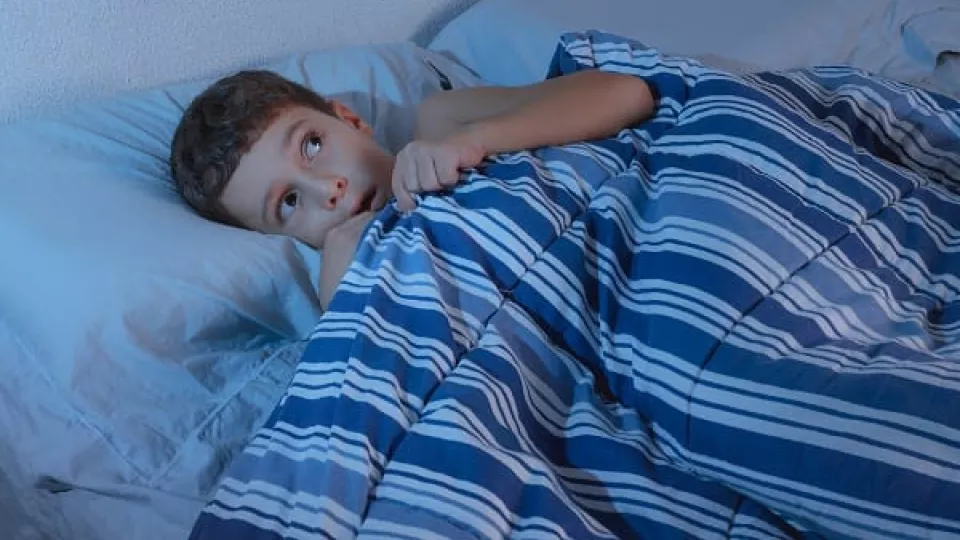
Help Your Child Cope with Night Terrors
If your child is waking up in the middle of the night, thrashing around, sleepwalking or mumbling, they may be experiencing a night terror episode. Night terrors are common in children and differ from nightmares, which I talked about in part one of my two-part series, “Bad Dream Woes.” I’d like to welcome back Karen Rogers, PhD, Psychologist and Program Area Leader for Project HEAL at Children’s Hospital Los Angeles, for her expert advice to help your child cope with night terrors.
What is a Night Terror?
Night terrors are a type of partial-awakening disorder common in children aged three to six or even as old as 12. In fact, between one and six percent of children experience night terrors, says Rogers. Night terrors occur during the transition from the deepest stage of sleep to lighter stages of sleep. They are characterized by an abrupt wakening, usually within the first one to three hours of sleep and can last as long as 20 minutes.

The following behaviors are usually present in a night terror episode:
- Your child abruptly wakes up within in one to three hours of sleep.
- Your child will scream or mumble, breathe rapidly, have an increased heart rate and often sweat.
- Your child cannot be comforted.
- Your child’s eyes are wide open but they do not know you are there (they are still asleep).
- Your child will eventually calm down and fall back asleep.
- Your child may not remember the night terror episode.
What Triggers a Night Terror?
Night terrors can be triggered by stressful events in your child’s life, extreme tiredness, being startled by a loud noise or a sudden change in bedtime schedule. Rogers explains, night terrors can also increase your child’s anxiety during the day, even if they don’t remember it.
What to do When You Witness a Night Terror
It’s disturbing for parents to witness a night terror the first few times. The child appears awake, is moving around but unresponsive; this is scary. The most important thing is to NOT restrain or wake up your child. Restraining your child may cause the night terror to last longer and make your child upset. Attempting to wake your child will cause them to be confused and disoriented. If you find your child sleepwalking in the night, gently lead them back to bed.
Help Your Child Keep Night Terrors Away
It’s okay to feel unsure in how to help your child cope with night terrors. Witnessing an episode is a different and unique experience. There are easy ways you can help, says Rogers,
- Keep the same bedtime and wake-up time during the week and weekend.
- Make sure the area around your child’s bed is safe.
- Keep track of what time the night terrors start and wake up your child about 15 minutes before that. Waking your child up before it begins can usually keep it from happening.
- Give your child positive attention and reassurance if they have anxiety.
If night terrors continue after you try methods to prevent them, speak with your child’s pediatrician or therapist. Has your child experienced night terrors? What are some ways you helped and provided positive attention to ease anxiety?

